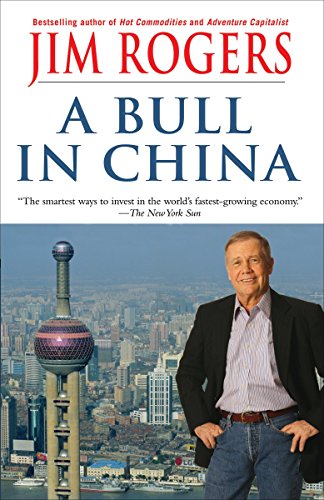Just before the Songkran festival marking the Thai new year, I met 69-year-old Marc Faber in his museum-like home office in Chiang Mai, Thailand.
After a brief greeting, as I was about to walk around inside the architectural masterpiece filled with Communism and Maoist artifacts, Faber asked me to take off my shoes.
“We ARE in Thailand, after all,” he grinned.
Having lived in the largest city in Northern Thailand for decades, Faber is very much a local. There was no air conditioning on this humid day. In a black tank top and barefeet, he converses in Thai with his staff. Three dogs sat quietly in the backyard.
 Tomorrowu2019s Gold: A...
Best Price: $40.47
Buy New $49.95
(as of 08:40 UTC - Details)
Tomorrowu2019s Gold: A...
Best Price: $40.47
Buy New $49.95
(as of 08:40 UTC - Details)
But from this unusual base, Faber is still able to observe market movements and world economic machinations with razor clarity. And his ideas are, as always, unconventional.
To be sure, there is nothing conventional about Faber. He obtained a PhD magna cum laude in economics at the University of Zurich at the age of 24. After riding through multiple market cycles from New York to Hong Kong, he made a name for canny market predictions and investment foresight.
We talked for about an hour, mostly on China. You can listen to the edited conversation here. I promise it’s insightful and entertaining.
For a quick recap of my chat with Faber, you can simply remember this: ignore the hyperbole of daily financial news. Put things into perspective, and think long-term.
 A Bull in China: Inves...
Best Price: $3.50
Buy New $9.57
(as of 11:55 UTC - Details)
A Bull in China: Inves...
Best Price: $3.50
Buy New $9.57
(as of 11:55 UTC - Details)
For example, you probably have read a lot about how China’s economy is dangerously slowing, or that capital is flying out of China in droves.
Faber had this to say: “I wouldn’t be too worried about the problems in China for the near-term. I think it’s solvable. Hopefully, it is painful because the society needs some pain from time to time, then the economy takes off again.”
As to capital outflow, he said he doesn’t buy the argument that capital is leaving China because of a lack of confidence. “If there is complete opening of the capital accounts, I would imagine that the RMB would rather appreciate than depreciate,” he predicts.





